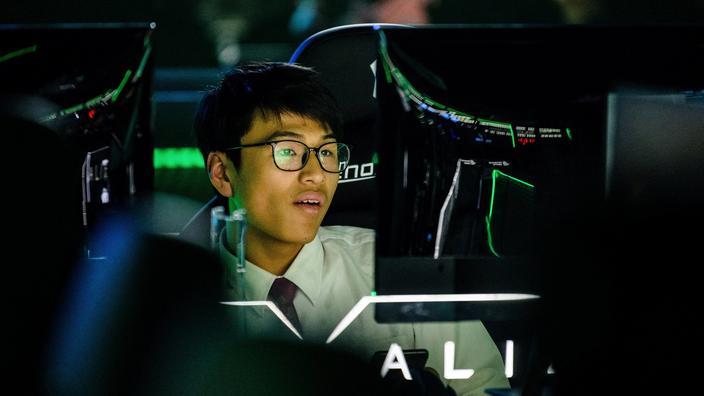Olivier Babeau is president of the Sapiens Institute and professor at the University of Bordeaux. In 2020, he published
The New Digital Disorder
(ed. Buchet-chastel).
China has made several surprising decisions in recent months. 18-year-olds can no longer play online video games for more than three hours a week (only from 8 p.m. to 9 p.m., Friday to Sunday). Those under 16 are prohibited from broadcasting their video games online. The amounts spent each month in these games are also capped. This regulation considerably tightens the limitations put in place in 2019. Another recent announcement: the time spent on the TikTok app, which is very popular with young people, is now limited to 40 minutes per day.
One can of course be indignant at these measures and interpret them as further examples of the authoritarianism of the Chinese regime.
But that would be missing the point.
These bans are not measures of political control, but of public health and economic efficiency.
The reasons for these prohibitions are clearly explained: it is a question of fighting against the “mental opium” which constitutes the screens for the young people.
In the 21st century, industrial capitalism has become cognitive capitalism;
the success of countries depends on abundance and performance and sharp brains.
Olivier Babeau
Addictive behaviors linked to screens are not without consequences: loss of vision, memory and attention span, too sedentary life, depression and anxiety. Concerns corroborated by innumerable studies, as recalls Michel Desmurget, author of the best-selling book
La fabrique du crétin digital
:
“on a brain under construction, we observe a major impact of recreational screens on language, concentration, memory. , attention and academic success. Human intelligence being closely linked to our language, memory and concentration capacities, there is really something to worry about ”.
Everyone knows that two great political models are engaged more than ever in a secret struggle: liberal democracies and authoritarian regimes.
The former refuse to use the same tools as the latter.
But they still face the same challenges.
In the 21st century, industrial capitalism has become cognitive capitalism;
the success of countries depends on abundance and performance and sharp brains.
Read alsoLaurent Alexandre: "China has embarked on the battle for control of the future"
A school system of excellence is not enough: the brains must not be damaged by the screens. The Chinese leaders found it necessary to limit screen time because they felt they posed a threat, fundamentally, not only to the health of young people, but in the longer term to the performance of their brains. But there is no reason to think that screens affect the cognition of little French people less than that of little Chinese. According to ANSES, 11-24 year olds spend more than 26 hours per week in front of screens on average. This time is taken at the expense of physical activity which is reduced to less than 30 minutes per day for 45% of 11-14 year olds.
The brain war is raging, and it determines the future might of nations, but we are looking elsewhere.
In South Korea, it was to prevent children from working that it was necessary to legislate!
The government had to ban classes after 10 p.m.
But this ban is bypassed thanks to online videos whose peak connections take place between 11 p.m. and 1 a.m.!
A risk that does not threaten France ...
All the efforts to make up for social inequalities made during school time run the risk of being annihilated if they are not coupled with action on screen time.
Olivier Babeau
If we have to worry about the use which is made of "available brain time" (to use the famous expression of Patrick Le Lay), it is not only because it carries the germ of a weakening in the face of countries focused on developing their cognitive performance; the risk is also that of an aggravation of social determinisms. Studies have shown for a long time that behaviors dangerous to health are very significantly more common in smaller populations. Poverty, in other words, is correlated with smoking, alcohol and obesity. The consequences on their lives are unfortunately measurable: they live less long and in less good health. The screen is one of these new risky behaviors. Time toscreen is 40% higher among children from low-income households compared to well-off households.
Wealthy backgrounds develop elaborate strategies to control this time for their children.
They make it possible to make the most of these new learning and training resources in the world.
We must realize that modest backgrounds do not have this know-how.
All the efforts to make up for social inequalities made during school time run the risk of being annihilated if they are not coupled with action on screen time.
It is undoubtedly not a question of using Chinese methods in France;
but it is important to think collectively on how we can better protect children, especially those from the most modest backgrounds, from the proven risk associated with uncontrolled screen attendance.



/cloudfront-eu-central-1.images.arcpublishing.com/prisa/BH3XAD4LLRD4JAVWMQKATJXMDY.jpg)





